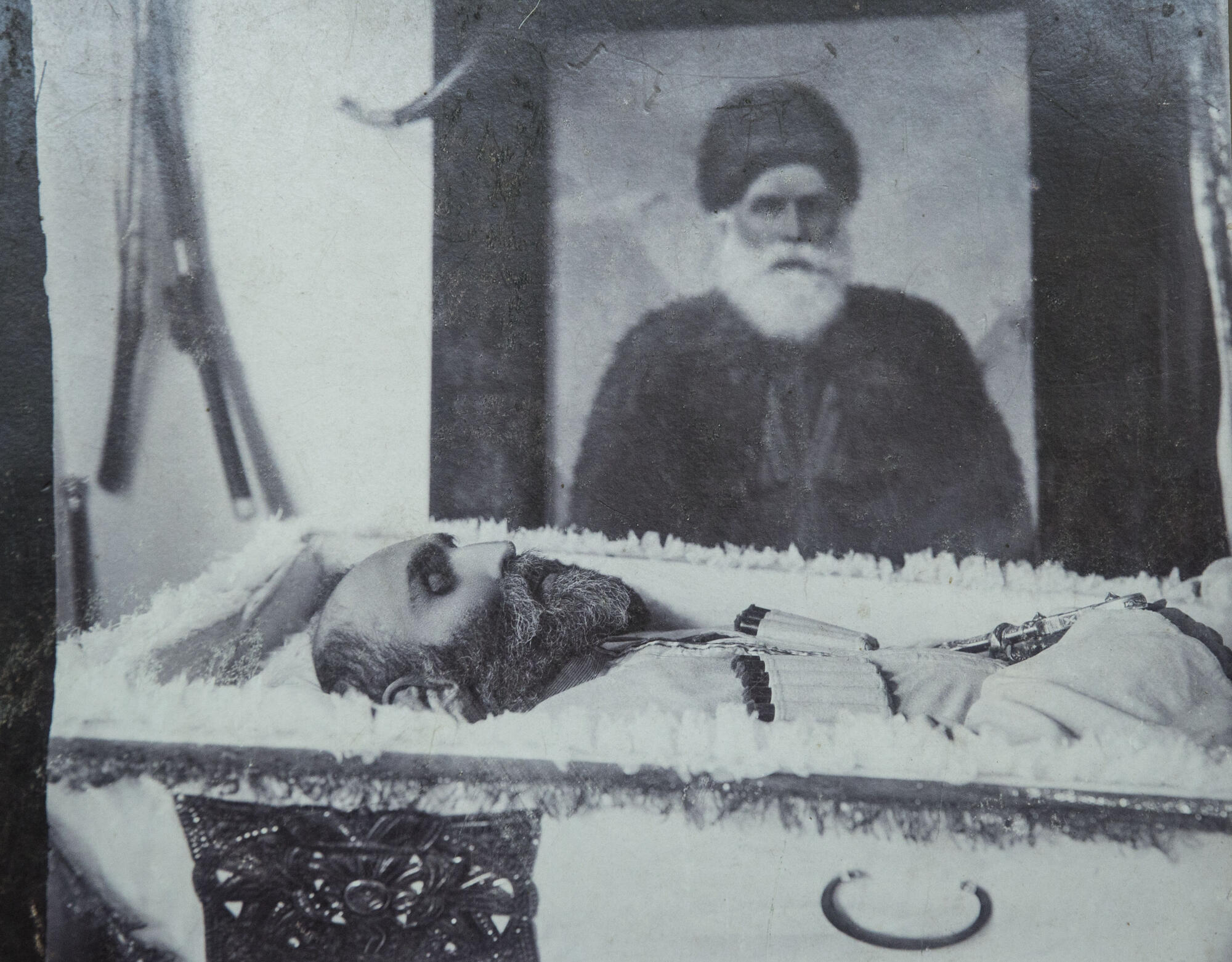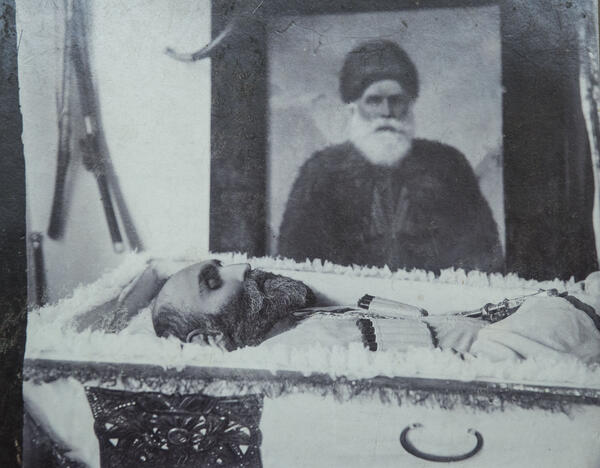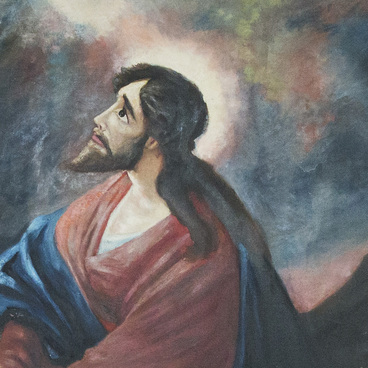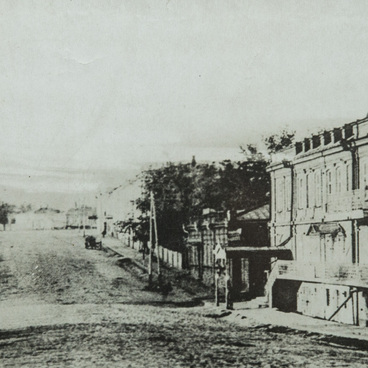Shortly after Kosta Khetagurov’s death, the newspaper “Terek Statements” reported: “On March 19th [April 1st in the new calendar], the famous Ossetian and Russian poet Kosta Khetagurov died”. The Terek Region intellectual society insisted that his ashes be transported to Vladikavkaz for burial. In order to accomplish this, several people went, with a zinc coffin, to the village of Georgiyevsko-Osetinskoe, where the poet spent the last days of his life.
Initially, Kosta Levanovich was buried in the Khetagurov family crypt. The poet’s relatives flatly refused to allow him to be reburied, but after two weeks of negotiations, they agreed. The coffin of the poet from Georgiyevsko-Osetinskoye was taken on horses, and later loaded onto a train. At each station, his ashes were met by residents of the surrounding villages, with a great number of fans coming to the station in Beslan in particular. Some of the audience even followed the coffin to Vladikavkaz to see Khetagurov off on his last journey.
Thousands of people of different ethnicities gathered in the capital of Terek Oblast. A memorial service was held in the Ossetian and Georgian languages, after which the funeral procession went through the city’s main streets to the Ossetian Church. Before the procession, funeral wreaths were carried by representatives of different peoples, public organizations, and associations: from Ossetians, Georgians, Armenians, the Vladikavkaz press, students, and many others. The poet was accompanied by the words: “To dear Kosta from grateful Ossetia”, “To a good person from the suburbanites from the other side of the Terek River”, “To a fighter for people”s rights and freedom”, “To a dear comrade from staff and the editorial board of the Vladikavkaz newspaper”, “To the pride of our gorge”.
The procession was met by the Armenian clergy of Vladikavkaz. A memorial service was held in Armenian, and after the funeral service at the grave, the mullah said prayers in Arabic. At the end of the funeral ceremony, a horse was dedicated to the deceased, as per tradition.
After Khetagurov’s funeral, many publications about his life and work were published in the Russian-language press, including the newspapers ‘Saint Petersburg Statements’, ‘Tiflis Page’, ‘Baku’, ‘New Review’, ‘Terek’ and others. Journalists remembered Kosta Levanovich as an outstanding writer and public figure, and a fighter for freedom, equality, and fraternity.
Initially, Kosta Levanovich was buried in the Khetagurov family crypt. The poet’s relatives flatly refused to allow him to be reburied, but after two weeks of negotiations, they agreed. The coffin of the poet from Georgiyevsko-Osetinskoye was taken on horses, and later loaded onto a train. At each station, his ashes were met by residents of the surrounding villages, with a great number of fans coming to the station in Beslan in particular. Some of the audience even followed the coffin to Vladikavkaz to see Khetagurov off on his last journey.
Thousands of people of different ethnicities gathered in the capital of Terek Oblast. A memorial service was held in the Ossetian and Georgian languages, after which the funeral procession went through the city’s main streets to the Ossetian Church. Before the procession, funeral wreaths were carried by representatives of different peoples, public organizations, and associations: from Ossetians, Georgians, Armenians, the Vladikavkaz press, students, and many others. The poet was accompanied by the words: “To dear Kosta from grateful Ossetia”, “To a good person from the suburbanites from the other side of the Terek River”, “To a fighter for people”s rights and freedom”, “To a dear comrade from staff and the editorial board of the Vladikavkaz newspaper”, “To the pride of our gorge”.
The procession was met by the Armenian clergy of Vladikavkaz. A memorial service was held in Armenian, and after the funeral service at the grave, the mullah said prayers in Arabic. At the end of the funeral ceremony, a horse was dedicated to the deceased, as per tradition.
After Khetagurov’s funeral, many publications about his life and work were published in the Russian-language press, including the newspapers ‘Saint Petersburg Statements’, ‘Tiflis Page’, ‘Baku’, ‘New Review’, ‘Terek’ and others. Journalists remembered Kosta Levanovich as an outstanding writer and public figure, and a fighter for freedom, equality, and fraternity.



